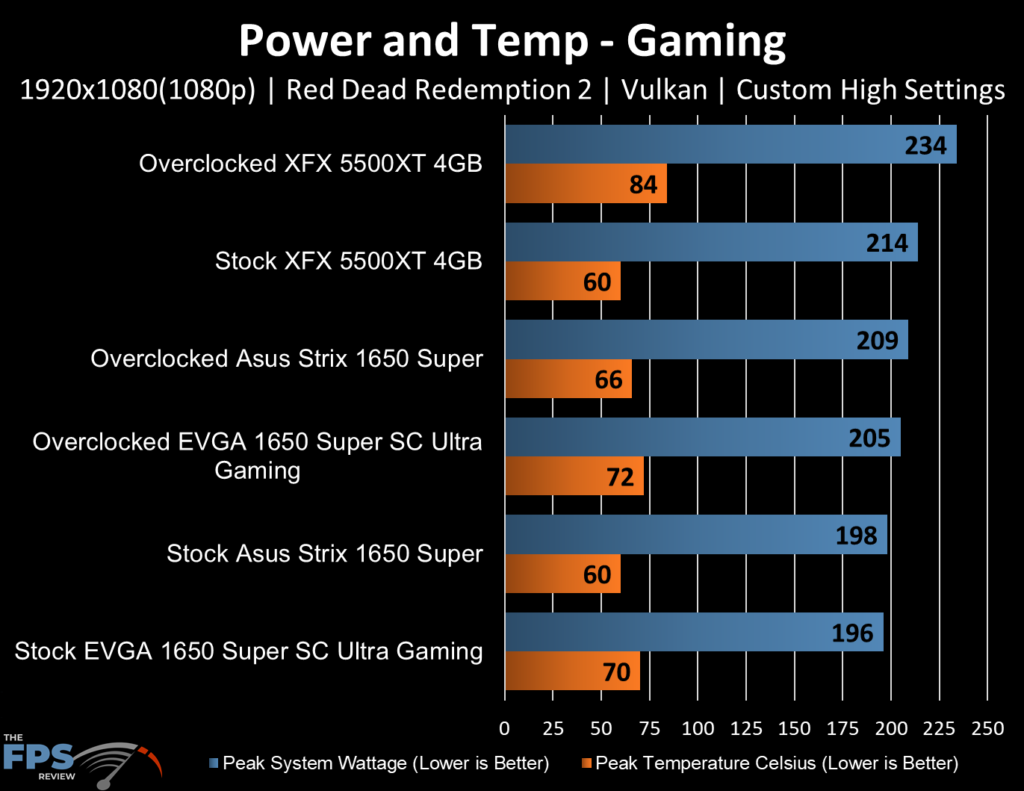Power and Temperature Testing
We are measuring system power at the wall in Watts utilizing a Kill-A-Watt to measure total system power. The power supply in use during benching is Thermaltake Toughpower Grand RGB 850W 80+ Gold, which is more than enough for any GPU in this product class. During testing, the measured ambient room temperature was 72 F/22.2 C.

The results are fairly expected, given what we know about the architectures of the GPUs at play here. Even with AMD’s great strides in efficiency, the reality is that the GeForce 1650 Super cards are simply more conservative in their power usage. Our EVGA sample used 196 Watts when in its stock configuration, and this shot up to 205 W with our applied overclock. When we compare this to our XFX 5500XT 4GB, we see that our EVGA model is drawing 18 Watts less, or 8.7% less power than the XFX 5500XT 4GB. When overclocked, this difference increases in favor of the EVGA 1650 Super SC Ultra Gaming.
With our GPU using 29 less Watts, or 13.21% less power. This manages to be the most conservative card in our lineup, with the differences between it and the Asus card largely being attributed to the higher clock speeds obtained on the Asus model. The difference, at the end of the day, was largely negligible, and your mileage may vary based on your luck with the silicon lottery. Another thing to note is that our EVGA model ran significantly hotter than our Asus model. Both cards were well within safe temperatures, but it’s clear the EVGA cooler is not as capable as the Asus cooler.
